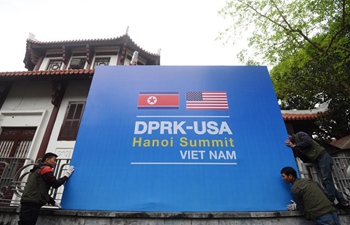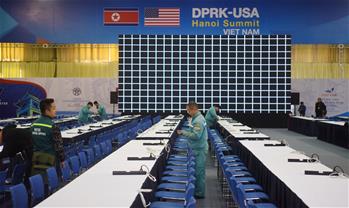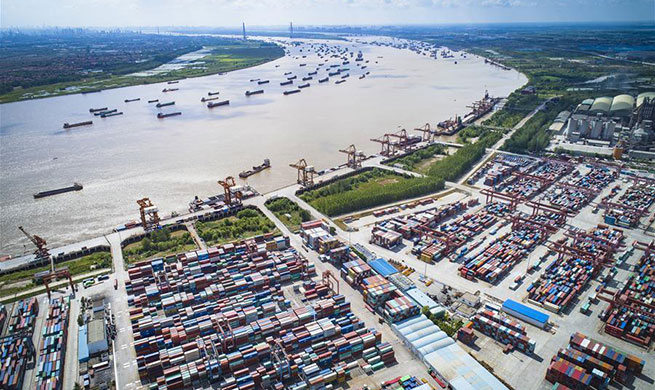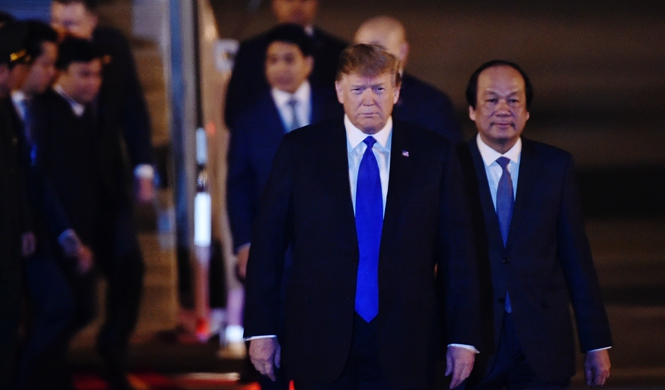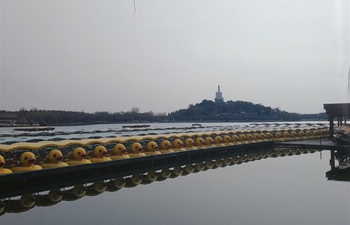by Burak Akinci
ANKARA, Feb. 26 (Xinhua) -- Turkey and the European Union are again clashing over Ankara's enduring accession bid amid a call by European lawmakers to suspend the already stalled negotiations, but experts believe that mutual interest will prevail in the end.
Last week, the Foreign Affairs Committee of the European Parliament called on the European Commission and member states to formally halt the talks, citing Turkey's disregard for human rights and civil liberties, influence on the judiciary, and disputes over territory with neighboring Cyprus.
The vote is non-binding but a final vote will be set for March in the parliament's plenum, just before Turkish local elections planned for March 31.
Furthermore, it has to be admitted that those who recommended the suspension of the negotiations process represent a noticeable segment of the European public and the EU has been unable to offer Turkey an accession perspective.
The Turkish Foreign Ministry retaliated immediately to an "absolutely unacceptable" decision that could pose a new hurdle in the difficult path between Ankara and Brussels.
Experts said that it is not the first time that a European body has expressed hostility towards talks with Ankara.
"It's an advisory report which is non-binding and we have heard voice of a total suspension of talks with Turkey ... but there is a fact: the EU needs Turkey," Mustafa Nail Alkan, expert on EU affairs from Ankara's Haci Bayram Veli University, told Xinhua.
"The EU would surely not lose Turkey," Alkan added, citing especially the critical deal inked in 2016 between Ankara and Brussels, which aimed to stem the migrant influx to Europe.
Alkan however predicted "a troublesome period ahead" for the EU and Turkey who has been kept waiting at Europe's door for so long and has lost its patience and popular drive to join the EU.
Turkey applied for membership in the European Economic Community, a precursor to the EU, in 1987. It became eligible for EU membership in 1997 and accession talks began in 2005.
Subsequent talks have stalled on a number of occasions, as Turkey attempts to iron out what the EU sees as discrepancies between its own political values and those of Ankara.
The European lawmakers' move came in a period where Turkey and the EU were mending their icy ties following the failed coup attempt in July 2016 against Turkish President Recep Tayyip Erdogan and his government, followed by a massive crackdown in opposition circles.
The EU has frequently accused Turkey of drifting away from European values and democracy in recent years, particularly in the wake of the failed coup.
In the year following the overthrow attempt, Erdogan's proposals to expand his powers, which he subsequently did by means of popular vote, and reinstate the death penalty led the European Parliament again to call for accession talks to be suspended.
A recent op-ed in the pro-government Daily Sabah said that "Turkey's anti-terrorism policies have been highly criticised by its Western counterparts, which are actually the same policies that make the European continent more secure."
"Full membership's possibility has been left out, but to be honest, is this the real reason behind it or should we read between the lines?" the article added.
During an interview with private broadcaster CNN Turk on the weekend, Erdogan expressed his frustration over his country's immobile candidacy bid and hinted that in the near future there would be no progress in relations.
The EU will never allow Turkey inside because of its religion and big population, Erdogan said, recalling his earlier suggestion of holding referendum on whether Turkey should continue full membership talks or nor.
"We should obviously have Plan B and Plan C," he added.
According to experts, Turkey is nevertheless leading a cool-headed policy against European bloc who is strongly divided on how to maintain a relationship with Turkey.
"Because of public opinion reaction to migrants, the EU considers Turkey as a buffer state of strategic importance and is doing the outmost to keep refugees on Turkish soil," professor Birgul Demirtas from Ankara's TOBB University told Xinhua.
The expert argued that to confront EU's leading countries' "perplexed approach" towards Turkey's accession ambitions, Ankara is maintaining a balanced policy so as not to cut its ties with the bloc.
However, Turkish president has lately made veiled threats over refugees to Europe, implying that his country would reciprocate to EU's inhospitable decisions by exiting the migrant deal, a dramatic move which could effectively put an end to accession negotiations.
Since we are not there yet, Demirtas said that "the two sides want to pursue their relationship and preserve their mutual economic interests" despite new challenges.
"The refugees' issue is one of securitization for Europe and for this reason, the EU will probably not cut its dialogue with Turkey," she added.

